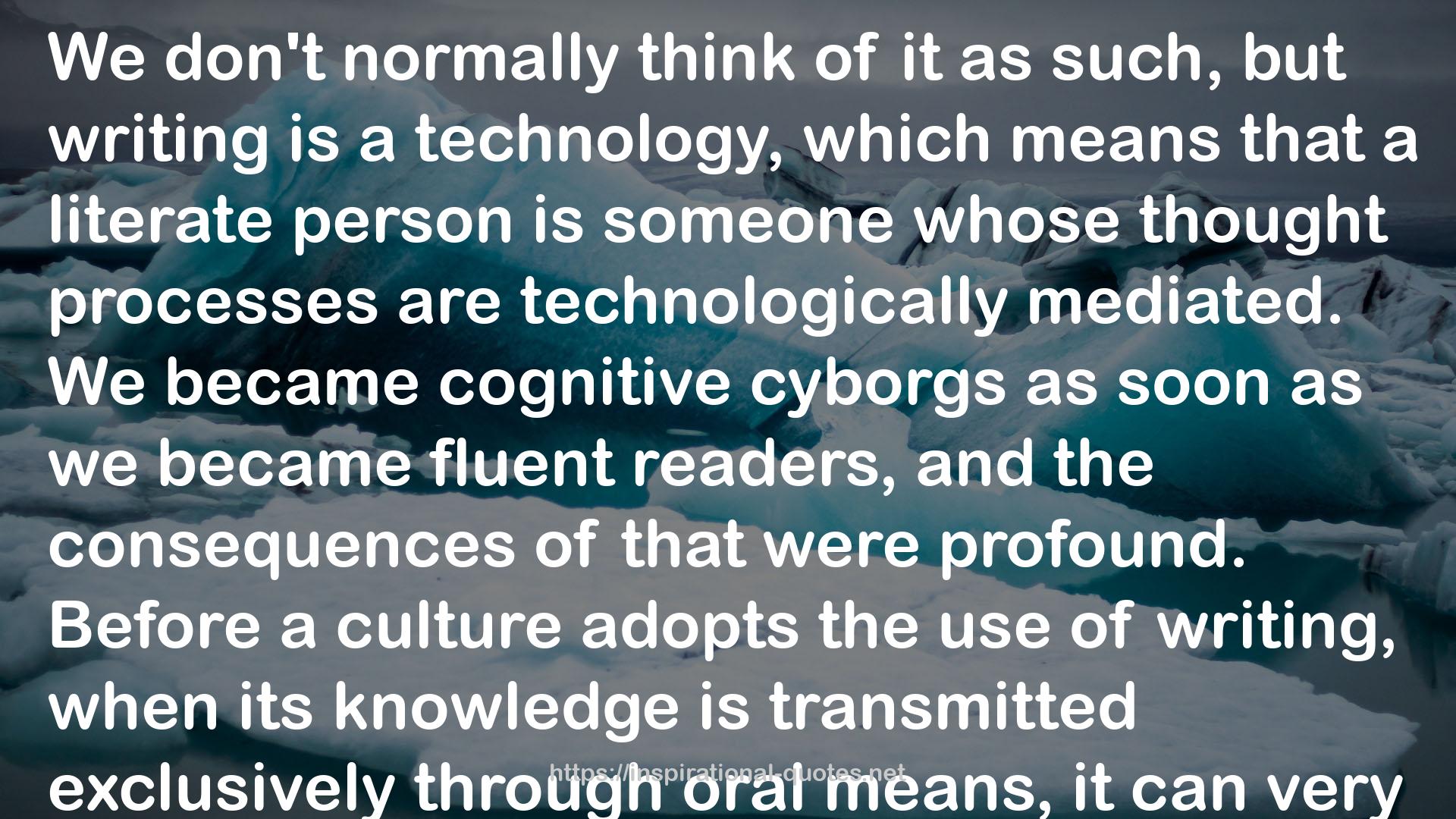" We don't normally think of it as such, but writing is a technology, which means that a literate person is someone whose thought processes are technologically mediated. We became cognitive cyborgs as soon as we became fluent readers, and the consequences of that were profound.
Before a culture adopts the use of writing, when its knowledge is transmitted exclusively through oral means, it can very easily revise its history. It's not intentional, but it is inevitable; throughout the world, bards and griots have adapted their material to their audiences and thus gradually adjusted the past to suit the needs of the present. The idea that accounts of the past shouldn't change is a product of literate cultures' reverence for the written word. Anthropologists will tell you that oral cultures understand the past differently; for them, their histories don't need to be accurate so much as they need to validate the community's understanding of itself. So it wouldn't be correct to say that their histories are unreliable; their histories do what they need to do.
Right now each of us is a private oral culture. We rewrite our pasts to suit our needs and support the story we tell about ourselves. With our memories we are all guilty of a Whig interpretation of our personal histories, seeing our former selves as steps toward our glorious present selves. "
― Ted Chiang , Exhalation
